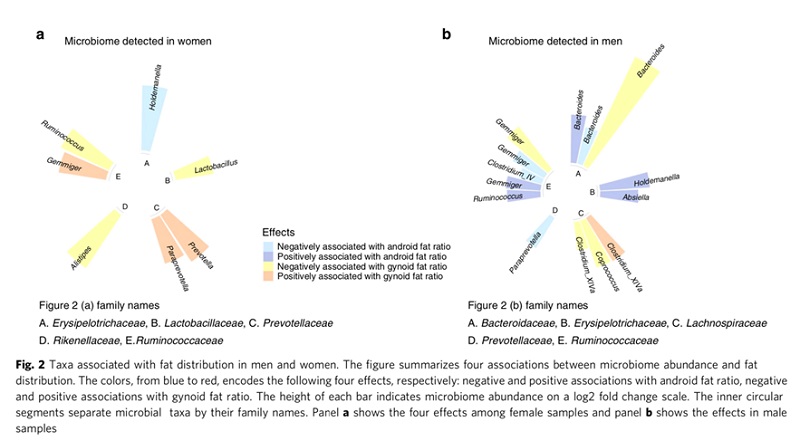Gut microbiame and fat distribution linked to gender
An international team by ZJU and Stanford scientists unravel sex-specific association between gut microbiome and fat distribution.
The human gut microbiome is a complicated, dynamic community consisting of 10–100 trillion microbes, which carries ~100 times more genes than the human genome. Studies have confirmed the relationship between the gut microbiome and the host obesity. However, little is known about how sex modulates the association between gut microbiome and fat distribution.
The research team led by ZHU Shankuan, a professor of public health at Zhejiang University, engaged in relevant research with the research team led by Mike Baiocchi with the Stanford Prevention Research Center. They elaborated on the complex link between gut microbiome and fat distribution in different sexes. Their findings are published in the June 03 issue of the journal of Nature Communications.
Their research showed sex-specific microbiome signatures contributing to obesity despite the fact that both sexes have similar gut microbiome characteristics, including overall abundance and diversity. However, the comparisons of the taxa associated with the android fat ratio in men and women revealed that there was a substantial distinction between men and women in terms of gut microbiome and fat distribution.

The participants of this microbiome study came from the same sub-district, different households of the WELL-China study. Researchers screened out 20 taxa related to fat distribution from hundreds of taxa, among which 13 were male-specific and 7 were female-specific. Notably, Researchers observed an overlap between the sexes at the genus and family levels in the gut microbiome, such as Holdemanella and Gemmiger; however, they presented inverse correlations with fat distribution in men and women. These results are a testimony to the sex-specific relationship between gut microbiome and fat distribution. This suggests that research into the gut microbiome and abdominal obesity-related disease outcomes should take into account sex-specific differences.
This research shows promise for a more accurate prediction of and a more effective therapy for microbiome-based cardiovascular and metabolic outcomes in the future.
